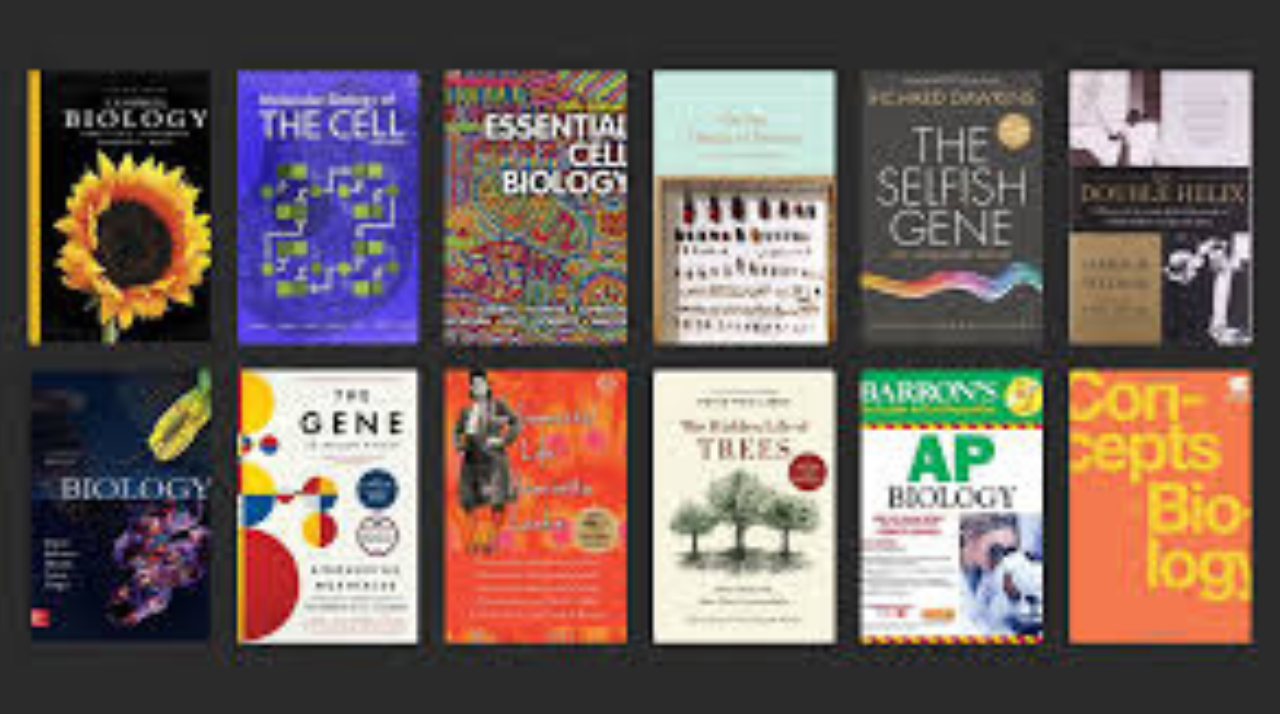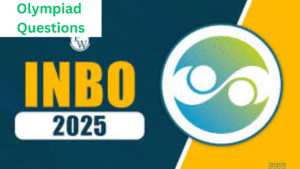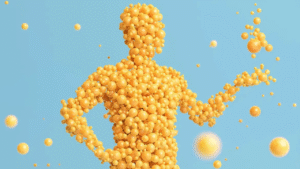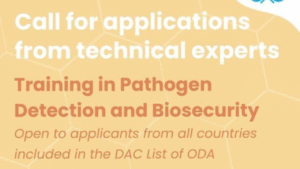A biology olympiad is a competition for high-achieving pre-university students to test and expand their biology knowledge and skills, with the International Biology Olympiad (IBO) being a premier global event. These competitions foster interest in the life sciences, encourage intercultural dialogue, and challenge students to develop advanced problem-solving and laboratory skills, preparing them for future scientific careers.
International Biology Olympiad Committee organizes International Biology Olympiad with the participation of numbers of countries around the world. Each country organizes their own Biology Olympiad to inspire their students in Biology.
Students around the world are highly interested in Biology Olympiad and life science. So they are aware about their preparation in Biology Olympiad and interested in Biological study and further research. There are a lot of resources for taking preparation for Biology Olympiad. Biology Olympiad Committee of each country provides guidelines to the students for attending Biology Olympiad. Students study on different platform as like Books, online platform etc. There are lots of Biology Books those are highly helpful for students to gather knowledge. We will discuss about few Biology Books those will be helpful for students to take preparation for Biology Olympiad.
1. Campbell Biology
Neil Campbell and Jane Reece’s BIOLOGY is unparalleled as the most successful biology textbook for majors globally. This text has engaged over 4 million students in exploring this dynamic and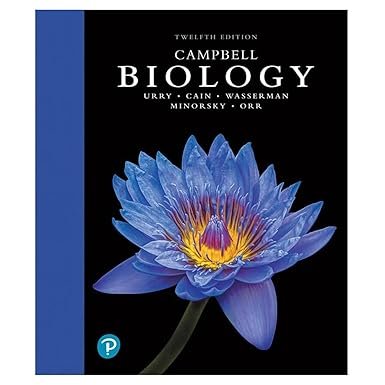 vital discipline. The authors have reorganized each chapter around a conceptual framework consisting of five or six key ideas. An Overview captivates students and prepares them for the remainder of the chapter, while each numbered Concept Head signifies the start of a new concept. Additionally, Concept Check questions at the conclusion of each chapter prompt students to evaluate their understanding of the respective concept. New Inquiry Figures direct students’ attention to the experimental process, and new Research Method Figures demonstrate significant techniques in biology. Each chapter concludes with a Scientific Inquiry Question that challenges students to utilize scientific investigation skills in relation to the chapter’s content.
vital discipline. The authors have reorganized each chapter around a conceptual framework consisting of five or six key ideas. An Overview captivates students and prepares them for the remainder of the chapter, while each numbered Concept Head signifies the start of a new concept. Additionally, Concept Check questions at the conclusion of each chapter prompt students to evaluate their understanding of the respective concept. New Inquiry Figures direct students’ attention to the experimental process, and new Research Method Figures demonstrate significant techniques in biology. Each chapter concludes with a Scientific Inquiry Question that challenges students to utilize scientific investigation skills in relation to the chapter’s content.
Campbell Biology primarily serves first-year university students, yet it also holds significance for postgraduate medical examinations. Additionally, some high school students might utilize it as a crucial reference book. While the material may pose challenges for high school students, it is appropriate for first-year university students. Conversely, the content may be overly simplistic for candidates preparing for post-baccalaureate examinations in Chinese medicine and Western medicine. Due to the intense competition in these exams, texts with more advanced material are frequently favored. Occasionally, the entrance exam questions for the post-baccalaureate medicine department are derived from more specialized books, particularly those that are closely associated with biochemistry, molecular biology, genetics, or ecology.
Buy ‘Campbell Biology’ from Amazon
2. Molecular Biology of the Cell
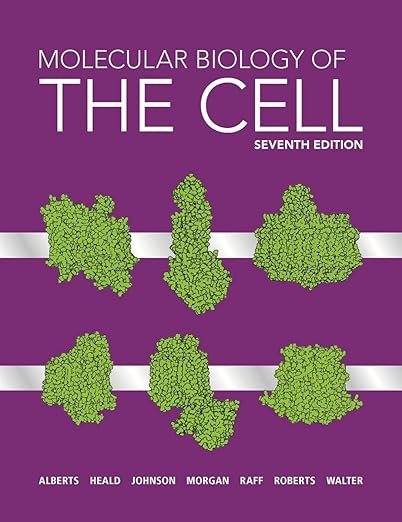 The book is written by Alberts, Bruce; Johnson, Alexander; Lewis, Julian; Raff, Martin; Roberts, Keith; Walter, Peter New York and London.
The book is written by Alberts, Bruce; Johnson, Alexander; Lewis, Julian; Raff, Martin; Roberts, Keith; Walter, Peter New York and London.
Molecular Biology of the Cell is a thorough and classic textbook designed for advanced students and researchers, presenting detailed insights into the current state and implications of cell biology. In contrast, Essential Cell Biology is an excellent introductory text that is more accessible for first- and second-year undergraduates, offering a conceptual foundation with simpler language and numerous illustrations. The primary distinction lies in the level of detail; Molecular Biology of the Cell caters to advanced study, whereas Essential Cell Biology serves as a foundational resource that can prepare students for more advanced texts.
Buy ‘Molecular Biology of the Cell’ from Amazon
3. Molecular Cell Biology
The book is written by Lodish, Harvey; Berk, Arnold; Zipursky, S. Lawrence; Matsudaira, Paul; Baltimore, David; Darnell, James E.
It is highly regarded as a thorough and authoritative textbook that embodies the enthusiasm of contemporary cell biology, integrating recent developments such as whole genome sequencing and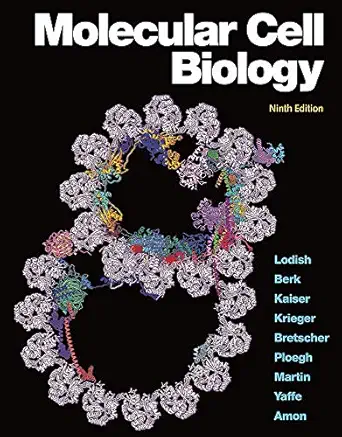 bioinformatics.
bioinformatics.
Critics emphasize its lucid and captivating writing style, abundant and high-quality illustrations (including micrographs), robust integration of experimental methodologies, and examples pertinent to the medical field. Additionally, the book is recognized for its cohesive emphasis on evolution and the incorporation of primary sources along with updated references, establishing a benchmark for undergraduate textbooks.
In order to adequately prepare for a Biology Olympiad centered on Molecular Cell Biology, it is advisable to study the suggested textbook, Molecular Biology of the Cell by Alberts, along with its corresponding Problems Book. Additionally, one should explore online resources from platforms such as Biolympiads and engage in the practice of interpreting experimental data, which includes gel electrophoresis, DNA concentration charts, and cell counts. Essential topics to focus on encompass cell structure, membrane transport, the cell cycle, cell signaling, DNA technology, and the biochemistry of macromolecules, including proteins and nucleic acids.
Buy ‘Molecular Cell Biology’ from Amazon
4. Raven Biology of Plants
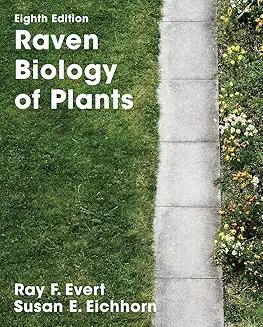 “Raven Biology” denotes a well-respected collection of biology textbooks, including titles like Peter H. Raven’s Biology and Raven Biology of Plants. These publications are recognized for their thoroughness, lucid explanations, and the incorporation of concepts such as evolution and cellular/molecular biology. Although some individuals consider the extensive information to be substantial for introductory courses, others value the in-depth explanations and rich visuals, rendering the books appropriate for both introductory and advanced studies.
“Raven Biology” denotes a well-respected collection of biology textbooks, including titles like Peter H. Raven’s Biology and Raven Biology of Plants. These publications are recognized for their thoroughness, lucid explanations, and the incorporation of concepts such as evolution and cellular/molecular biology. Although some individuals consider the extensive information to be substantial for introductory courses, others value the in-depth explanations and rich visuals, rendering the books appropriate for both introductory and advanced studies.
Raven Biology of Plants is a well-respected and thorough textbook recognized for its lucid explanations, abundant illustrations, and systematic organization that addresses plant biology from molecular to ecosystem scales.
Critics emphasize its utility for both learners and experts owing to its detailed content and progressive layout, although the early chapters may present a considerable amount of material quickly.
The book receives acclaim for its visual supports, the application of bold text for important terms, and its capacity to render intricate subjects understandable for individuals with a genuine interest in botany.
Buy ‘Raven Biology of Plants’ from Amazon
5. Lehninger Principles of Biochemistry
The book is authored by David L. Nelson and Michael M. Cox, stands as a cornerstone text in the field of biochemistry, widely revered by students and professionals alike. As an academic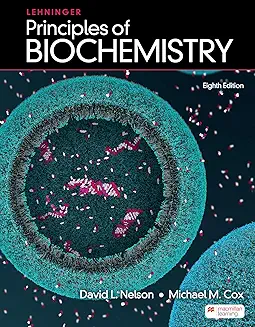 resource, it aims to provide a comprehensive and detailed account of biochemical principles, serving as both an introduction and a deep dive into the molecular underpinnings of life.
resource, it aims to provide a comprehensive and detailed account of biochemical principles, serving as both an introduction and a deep dive into the molecular underpinnings of life.
The book’s strengths lie especially in its organization and thoroughness. Each chapter methodically builds on the previous one, guiding the reader through fundamental building blocks such as amino acids and enzymes, before progressing to more complex topics like metabolic cycles and genetic information flow. This logical flow ensures that readers develop a solid foundational understanding, which is crucial for mastering the subject.
Lehninger Principles of Biochemistry is a highly comprehensive and valuable resource for advanced biology students, but it is generally considered too detailed for direct preparation for a biology olympiad. While past competitors have used it, the book is best used as a supplement for specific, in-depth topics after building a strong foundation with other resources.
Buy ‘Lehninger Principles of Biochemistry’ from Amazon
6. Vander’s Human Physiology
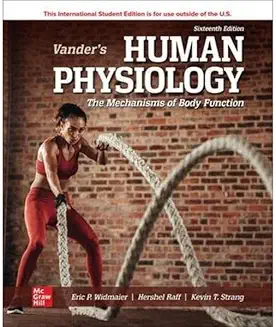 Eric Widmaier (Boston University), Hershel Raff (Medical College of Wisconsin), and Kevin Strang (University of Wisconsin) have accepted the responsibility of upholding the strengths and reputation of Vander’s Human Physiology: The Mechanisms of Body Function. Rather than simply listing facts, it emphasizes the causal relationships that form the mechanisms of body function.
Eric Widmaier (Boston University), Hershel Raff (Medical College of Wisconsin), and Kevin Strang (University of Wisconsin) have accepted the responsibility of upholding the strengths and reputation of Vander’s Human Physiology: The Mechanisms of Body Function. Rather than simply listing facts, it emphasizes the causal relationships that form the mechanisms of body function.
The primary aim of this textbook is to convey the principles and facts of human physiology in a manner that is accessible to undergraduates, irrespective of their academic background or field of study.
The fourteenth edition of Vander’s Human Physiology continues the legacy of clarity and precision, while also refining and updating the content to cater to the requirements of contemporary instructors and students. This edition presents a more streamlined, clinically oriented approach to the study of human body systems. Additionally, it has addressed reviewer feedback by incorporating more clinical applications. Throughout the chapters, Physiology Inquiries are included. These critical-thinking questions linked to figures provide yet another opportunity to enhance the student’s learning experience.
Vander’s Human Physiology is a well-respected and thorough textbook recognized for its lucid explanations, outstanding diagrams, and integrated clinical examples, which make it a preferred choice among pre-med and medical students. It highlights the central theme of homeostasis and features case studies that link fundamental physiological concepts to actual diseases and their treatments.
Buy ‘Vander’s Human Physiology’ from Amazon
7. Genetics: Analysis & Principles
Genetics: Analysis and Principles is an introductory genetics textbook designed for a one-semester course that adopts an experimental approach to the study of genetics.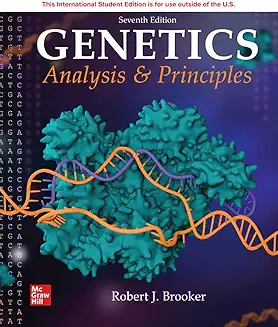
By integrating one or two experiments into the narrative of each chapter, students are able to simultaneously engage with the scientific method while grasping the genetic principles derived from these experiments. The pedagogy employed in Genetics: Analysis and Principles has been crafted to enhance student learning. Rather than merely presenting a compilation of facts and figures, this textbook aims to be an engaging and motivating resource, where formative assessment enables students to progress and absorb the material effectively.
Buy ‘Genetics: Analysis & Principles’ from Amazon
8. Biostatistics For Dummies by John C. Pezzullo
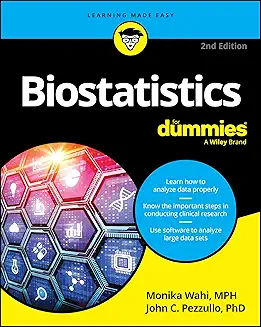 Biostatistics For Dummies is an accessible and user-friendly guide for those venturing into the challenging realm of biostatistics. Targeted primarily at beginners—students, healthcare professionals, and researchers—the book succeeds in simplifying complex statistical principles through clear explanations and practical examples.
Biostatistics For Dummies is an accessible and user-friendly guide for those venturing into the challenging realm of biostatistics. Targeted primarily at beginners—students, healthcare professionals, and researchers—the book succeeds in simplifying complex statistical principles through clear explanations and practical examples.
The conversational tone and step-by-step approach make difficult topics like hypothesis testing, regression analysis, and data interpretation more approachable. The inclusion of everyday scenarios and explanations of statistical software enhances its practical utility, making it a valuable tool for real-world applications.
While its simplicity is a major strength, more experienced readers might find the depth insufficient for advanced study. Nonetheless, this book excels as a foundational resource or a refresher, effectively breaking down barriers that often intimidate newcomers to biostatistics.
In summary, Biostatistics For Dummies is a well-crafted introduction that demystifies a complex subject, making it an excellent starting point for anyone eager to develop a solid understanding of biostatistics without feeling overwhelmed.
Buy ‘Biostatistics For Dummies’ by John C. Pezzullo
9. Ecology (Science 101) book by Jennifer Freeman
Ecology (Science 101) by Jennifer Freeman provides a clear, engaging introduction to the basics of ecology, aimed primarily at younger readers or beginners. The book effectively breaks down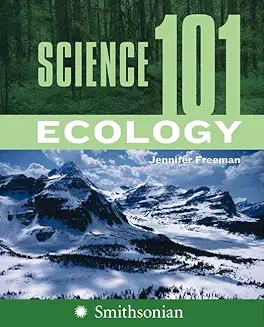 complex ecological concepts like ecosystems, food chains, and biodiversity into digestible, understandable segments without sacrificing scientific accuracy.
complex ecological concepts like ecosystems, food chains, and biodiversity into digestible, understandable segments without sacrificing scientific accuracy.
Freeman’s writing is approachable and supplemented with vivid illustrations that help visualize the interactions within nature, making the subject matter both educational and enjoyable. The structure is logical and concise, perfect for middle school students or anyone seeking a straightforward overview of ecological principles.
While it doesn’t delve deeply into advanced scientific detail, the book’s strength lies in its ability to spark curiosity and promote environmental awareness through relatable examples and real-world connections. It encourages readers to appreciate the importance of conservation and the delicate balance of natural systems.
Overall, Ecology (Science 101) is a well-crafted primer that makes ecology accessible and interesting, serving as an excellent starting point for those eager to understand the natural world and their role within it.
Buy ‘Ecology (Science 101) book by Jennifer Freeman’ from Amazon
10. How to prepare for the biology olympiad and science competitions
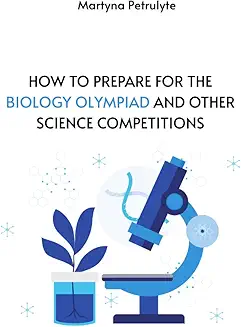 This book is an invaluable resource for students aspiring to excel in biology contests and Olympiads. This book thoughtfully combines strategic advice, comprehensive content review, and practical study techniques tailored to the unique demands of competitive biology.
This book is an invaluable resource for students aspiring to excel in biology contests and Olympiads. This book thoughtfully combines strategic advice, comprehensive content review, and practical study techniques tailored to the unique demands of competitive biology.
Its greatest strength lies in its clear organization and focus on actionable steps—ranging from mastering core biology topics to honing problem-solving skills through past papers and mock tests. The book also addresses critical yet often overlooked areas such as time management, mental preparedness, and effective use of supplementary resources, which can make a significant difference in competition performance.
While the material is quite dense and requires commitment, the straightforward language and structured approach make it accessible to dedicated learners. It encourages disciplined study habits and offers guidance on forming study groups, further enriching the preparation process.
In summary, this book is a well-rounded guide that transforms the intimidating task of competition preparation into an achievable, organized, and even enjoyable pursuit. It is highly recommended for serious students aiming not only to compete but to truly master biology at a high level.
Buy ‘How to prepare for the biology olympiad and science competitions ‘ from Amazon
The article is edited by Rafikul Islam, Science writer, Assistant Coach of Bangladesh Biology Olympiad


